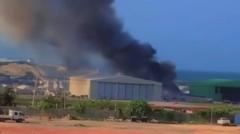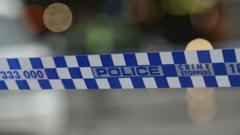In the wake of a BBC Africa Eye documentary revealing police and military violence against protesters in Kenya, rights groups have intensified calls for investigations into the deaths of demonstrators. The documentary has stirred public outrage while sparking a debate over government accountability and media censorship.
Calls for Justice in Kenya Following Police and Army Violence Exposed by BBC Documentary

Calls for Justice in Kenya Following Police and Army Violence Exposed by BBC Documentary
Human rights organizations demand accountability from Kenyan security forces after a BBC investigation reveals lethal force used against protesters during anti-tax demonstrations.
Pressure is mounting in Kenya for thorough investigations into reports of police and military violence against protesters during last June's demonstrations against tax increases. The renewed calls for accountability come following a recent BBC Africa Eye documentary titled "Blood Parliament," which exposes how security forces shot dead three unarmed protesters during protests against a controversial finance bill aimed at raising $2.7 billion.
The documentary, released on the BBC's Africa platform, has galvanized human rights organizations, with Amnesty International and the Kenya Human Rights Commission (KHRC) demanding that identified officers be held accountable for their actions. They argue that the documentary corroborates prior reports indicating the use of excessive force against demonstrators, leading to a notable death toll.
Government officials, however, have responded defensively. Isaac Mwaura, Kenya's government spokesman, criticized the BBC documentary for being "one-sided," claiming it fails to provide a balanced view of events, including ignoring acts of vandalism during the protests. He emphasized the importance of law and order while acknowledging the protesters' grievances regarding the proposed finance bill.
Political reactions in Parliament were mixed. While some lawmakers, like MP John Kiarie, accused the BBC of promoting a "foreign agenda," others, like Millie Odhiambo, insisted that the government must address the situation soberly and recognize the role of media in a democratic society.
In the aftermath of the documentary's release, the Kenyan police watchdog, the Independent Policing Oversight Authority (IPOA), reaffirmed its commitment to investigate reported violence, citing that it is examining the deaths, with a significant proportion resulting from gunshot wounds. To date, no officers have been charged in connection with the killings.
The response from the public has been vocal, with many social media users demanding accountability and expressing outrage through petitions urging for an official inquiry into the violence. The protests were characterized by a call for justice, particularly against what some groups are calling extra-judicial killings perpetrated by state security forces.
As tensions continue to rise, Kenya's leaders face increasing pressure to address security force accountability, while activists warn that failure to do so could lead to more unrest. The situation remains fluid, with repercussions expected as discussions on the documentary and the larger implications of governance in Kenya unfold.




















